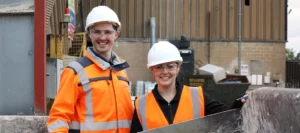Covid-19 has led to a reduction in our personal carbon footprints
There has been a 17% reduction in our carbon footprints between February 2019 and October 2020, according to data taken from WWF’s carbon footprint calculator.
The new data shows that between 2019 – 2020 there has been a near doubling of the number of people who are on 100% renewable energy tariffs, with an increase from 12% to 21%.
With travel being the largest contributor to the average carbon footprint, the covid-19 pandemic has played a large part in reducing this, mainly due to decreased flights.
The researchers have highlighted that switching to cycling, public transport, and electric cars can help to further reduce an individuals carbon footprint as life returns to ‘normal.’
However, the research revealed that even before Covid-19, more than 60% of respondents did not travel by public transport, and trends show the use of public transport going down.
Dr Stephen Cornelius, the chief climate adviser at WWF, said: ‘This analysis shows an encouraging trend towards lower carbon footprints across the UK. The doubling in take-up of 100% renewable energy tariffs is particularly positive as this can be a cheap and easy way for people to make a real cut in their emissions.
‘Travel is another important area for carbon savings and as we come out of lockdown, making deliberate decisions to walk, cycle and safely use public transport are small choices that make a big difference.
‘In this critical year for environmental action, it’s vital that people also use their voices to ask businesses and government to commit to the scale of transformation needed to tackle climate change and limit warming to 1.5°C.’
Dr Chris West at the Stockholm Environment Institute, University of York, added: ‘The carbon calculator analysis showed people’s desire for a lower carbon future. Meeting our climate targets will require a combination of small and big changes, such as maintaining a reduction in international travel, which is needed to bring down personal footprints.
‘Changing consumer behaviours are a very important component of moving towards a low-carbon future, but these must also be complemented by a rapid transition towards renewable energy and a circular economy.’
Photo Credit – Pixabay















